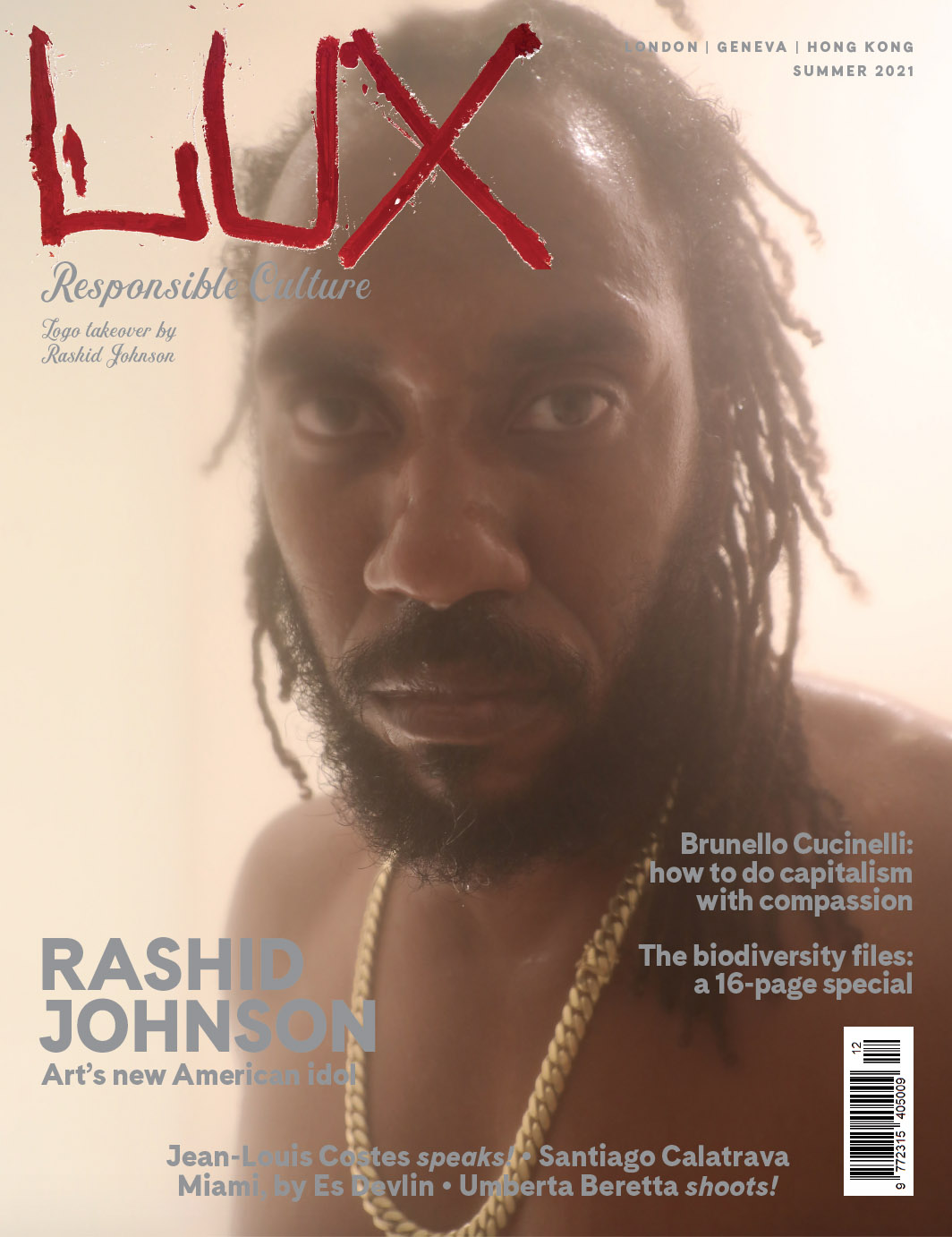
The main cover of our Summer 2021 issue, with a portrait of, and logo takeover by Rashid Johnson
Our Editor-in-Chief on the role of media and convergence in sustainability and luxury, from the editor’s letter in the summer 2021 issue
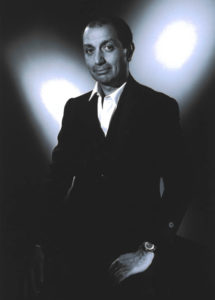
Darius Sanai
A curious thing happened to the media during the first lockdown last year. The media became everything, and nothing.
If you are struggling to make sense of that, consider this. For much of the period when we were forbidden from travelling or engaging in normal everyday activities, would wake up, flip onto WhatsApp and Instagram, login to Zoom and Teams, perhaps while checking out a YouTube video or TikTok feed on another device. In the evenings we might travel somewhere on Amazon Prime or YouTube, listen to stuff on Spotify, play League of Legends, search for a watch or a dress on Watchfinder or Net-a-Porter, or be entertained on Netflix or Apple. We would also use a podcast app to inform and entertain ourselves, maybe while Alexa or Siri read us the headlines from The New York Times.
All of that is ‘media’, which begs the question, what isn’t media?
Twenty years ago, I remember being asked, as a media correspondent for a newspaper, to write and give talks on the then new phenomenon of ‘convergence’, whereby previously completely disparate strands of human existence were starting to overlap and merge into each other. Convergence has now not just happened, but done a kind of backflip on itself. Witness the new armies of ‘creators’, who were once people with social media accounts, but are now investable business platforms leading reverse takeovers of the product lines and sectors they promote, from beauty to entertainment. They are also media, as is Ryan, who earns exclamation dollars a year opening toys on YouTube; and what is a non-fungible art token except the ultimate form of personalised, monetised media?
Follow LUX on Instagram: luxthemagazine
All of this has left some of the traditional media in a head spin. Which tail is wagging which dog when a magazine employs a writer who then becomes an advocate for a brand she has written about, and creates a following and business worth more than the magazine that employs her?
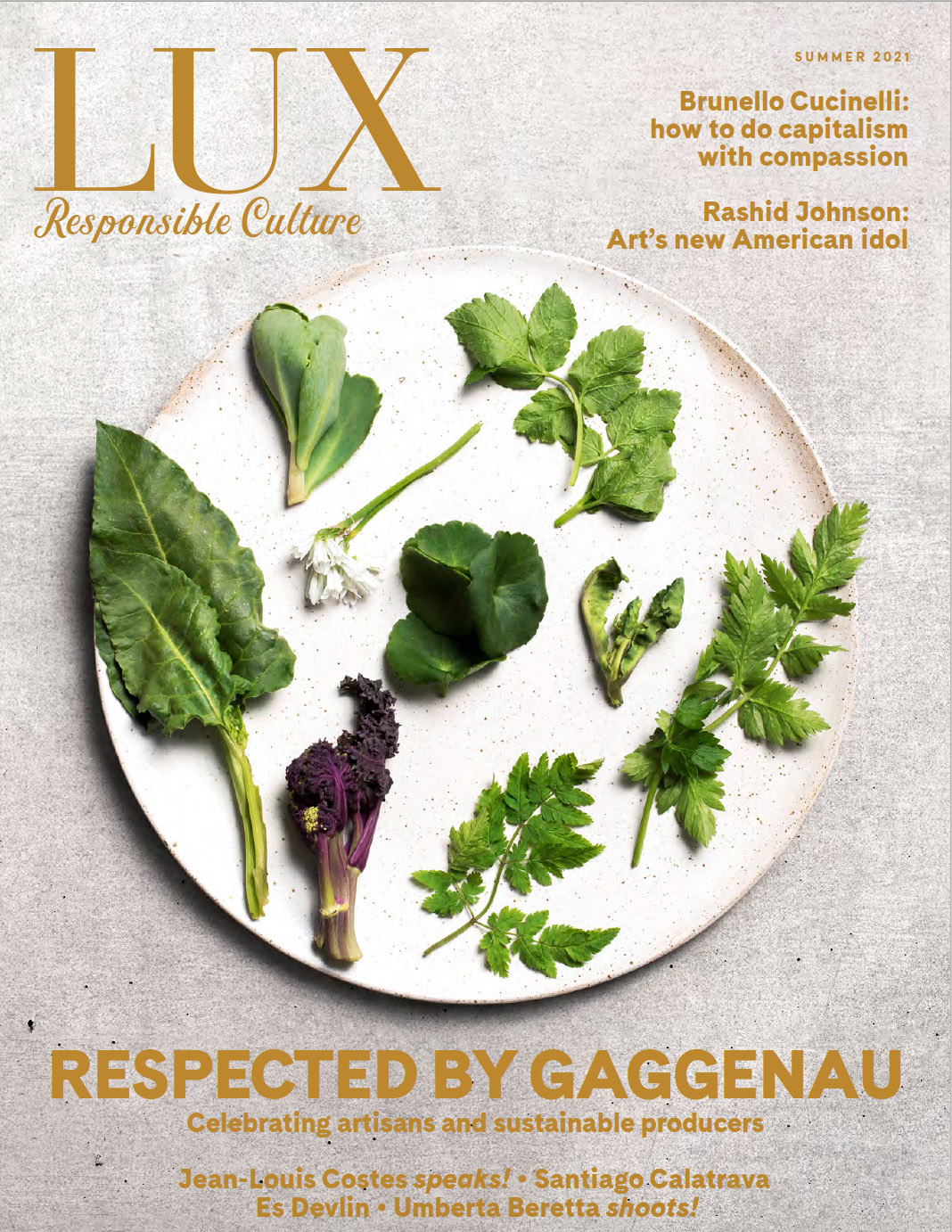
Our partner cover for Gaggenau
In a sense, nothing has changed except the players. In this new global ecosystem, ‘media’ refers to curation above anything else – just as it did when Diana Vreeland edited Vogue. An influencer curates brands and looks; a TikToker curates social memes; a Washington Post editor curates the hierarchy and interpretation of what is happening in the world.
Far from being a constraint to traditional media, it is or should be an opportunity. We used to be expert intermediaries, reporting on aspects of the world (news, analysis, business, art) to our audiences. Now, as well as curating, we create: bring to life experiences and ecosystems. We make things happen. We also leverage our existing ecosystems in new directions.
Read more: Sophie Neuendorf on why tokenisation is the art world’s new frontier
LUX readers were previously defined simply by their demographic. But with wealth comes responsibility, increasingly so in this era, and we are both being inspired by and inspiring our readers, partners and ecosystem to not only help create a better life for our readers, but help them do what they would like to do and adjust the direction of elements of the world for the better. Media has a responsibility to lead.
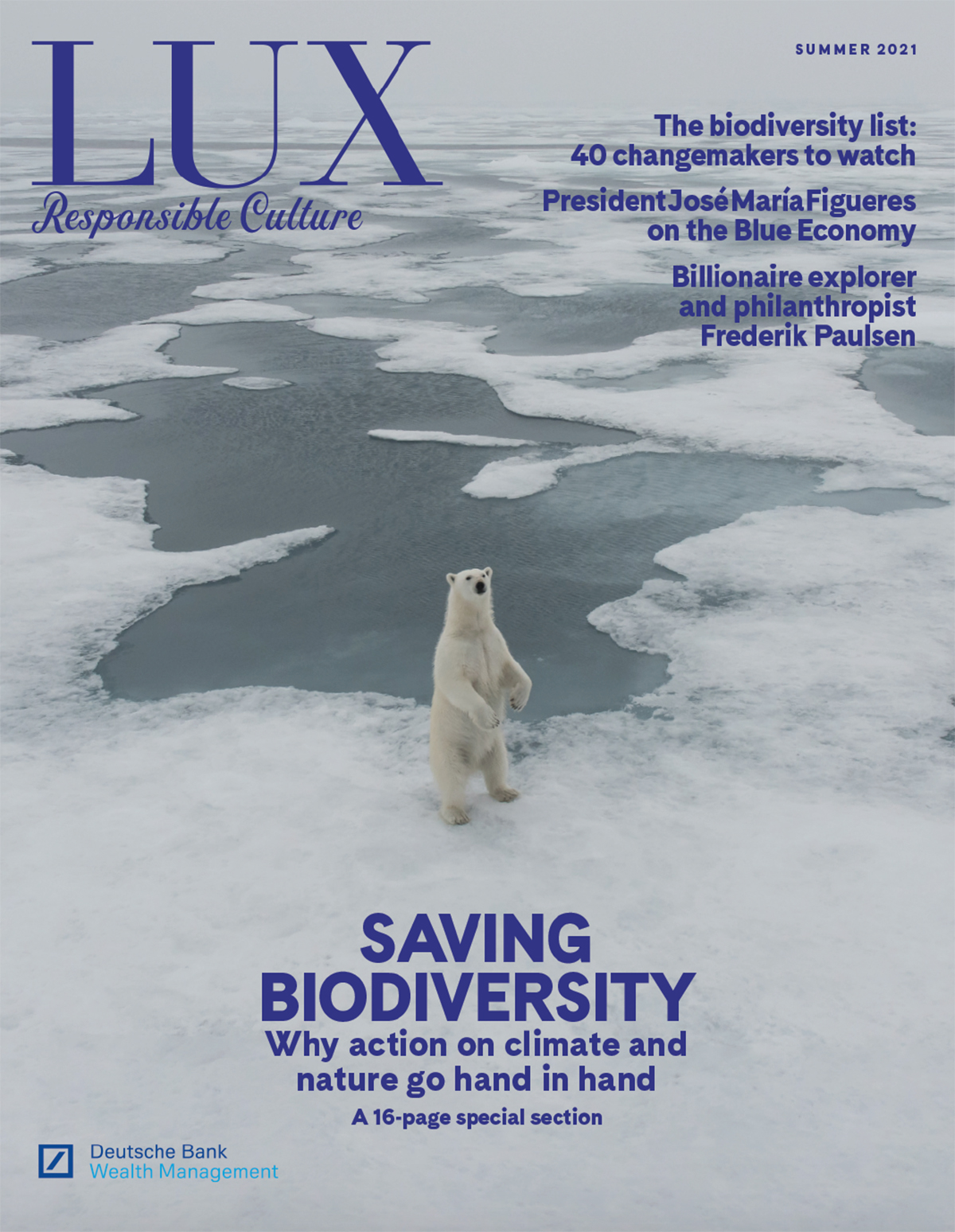
The summer issue contains a 16-page section in partnership with Deutsche Bank, on sustainability and biodiversity
That is why you will see our 16-page supplement, together with our partner Deutsche Bank, on biodiversity and the blue economy. It is why we have launched our new series on philanthropy online, and given it a manifestation in this issue. Why we are partnering with brands and institutions to create events as diverse as a prize for sustainable art, and a forum for biodiversity. When I interviewed Brunello Cucinelli, our conversation was about the moral duty of those who can help to do so; we barely spoke about the sublime cashmere he makes. Responsible culture has long been our tag line; it is also our call to action.
I hope you enjoy this issue and everything else we do – keep updated at lux-mag.com and on our Instagram.
Read more from our Summer 2021 issue:

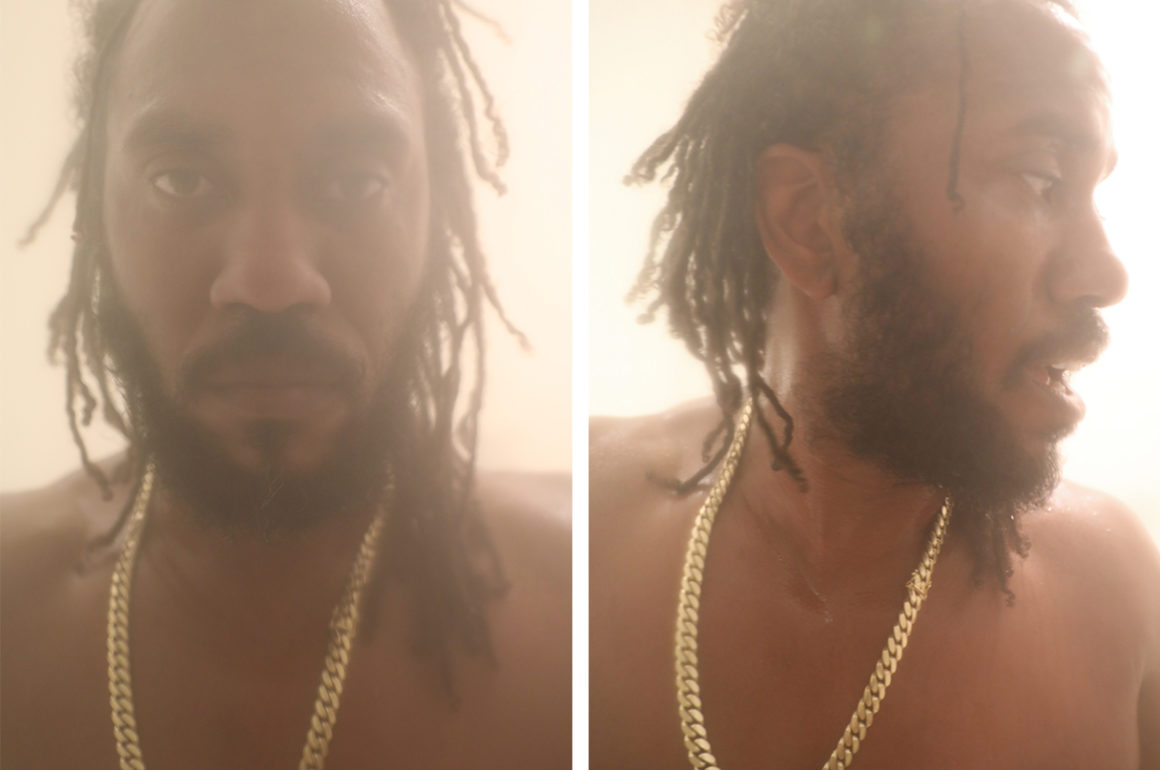





Recent Comments